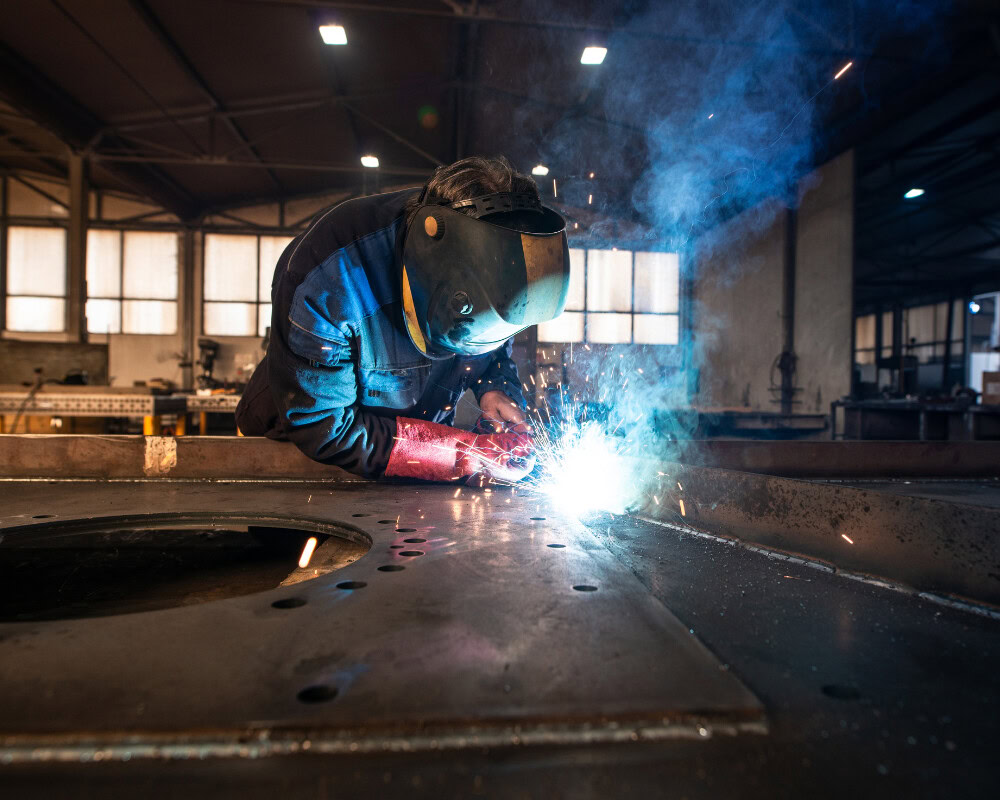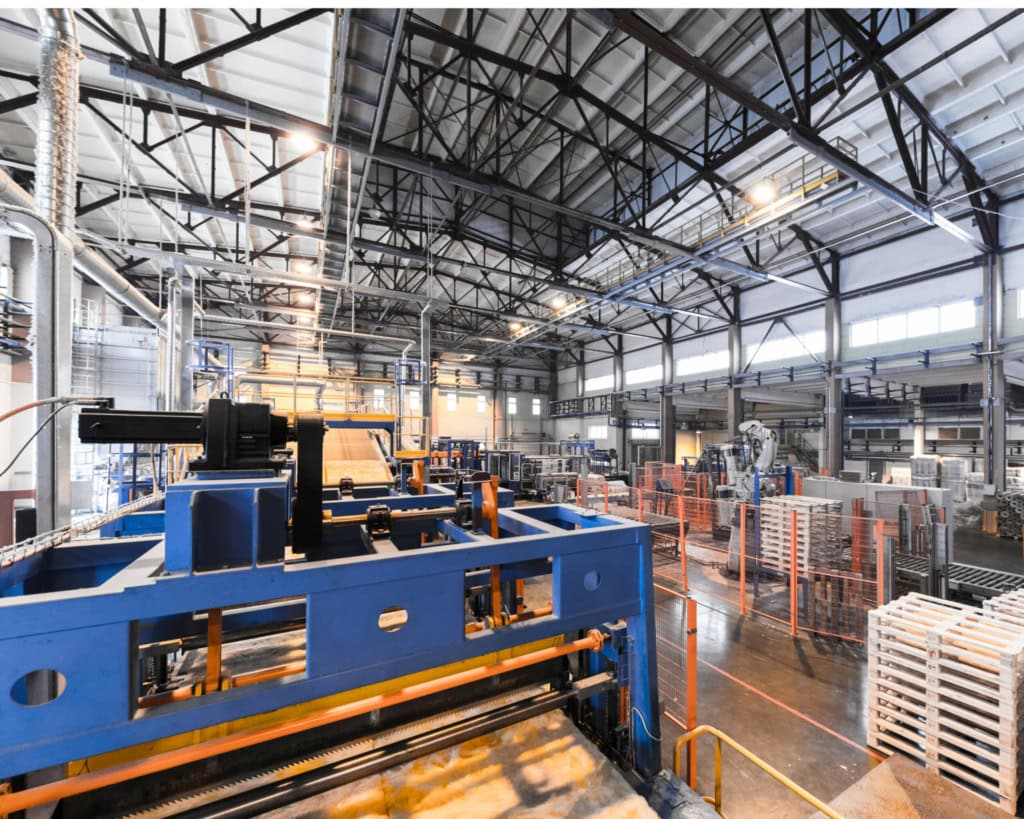Industry never sleeps, even during the most severe economic crises. March 12, 2020, the day of the biggest stock market crash in history, is living proof of this. As the CAC 40 recorded the biggest fall in its history, plunged by the scare of the coronavirus health crisis, stock markets around the world followed a free-fall trajectory. Despite this turbulent context, a bold decision was taken at the same time: to launch Mercateaman ambitious industrial start-up.
On the phone with my partners that day, our voices betrayed both excitement and uncertainty. But it was with unparalleled eagerness that we approved the transfer of funds to bring this project to fruition, opening a new chapter for our industrial vision.
Taking our first steps in the industry in the midst of a financial storm may seem like madness to some, but for us it was the perfect time to demonstrate the resilience and value of our idea. Mercateam's story, its launch and its rise, despite the obstacles of this unprecedented period, proves that the world of industry is capable of bouncing back, even in the face of the toughest challenges.
Our story begins in November 2019 with the ambition of understanding one of the least fashionable sectors of the moment: industry. With some of the brightest people I've ever met, we spent 6 months in the field visiting French factories, discovering day by day the sector's difficulties but also its strengths.
Despite the fear of launching a company in such conditions, we were convinced that our tool would never have as much impact on French society as it does today.
First observation: French industry is goingl
The origins of the project lie in a simple objective: "To provide the best possible service to our customers.Understanding why French industry is in a bad way, and how to wake up the sleeping beauty?"
Against a backdrop of economic crisis, the industry has taken center stage overnight. The COVID-19 epidemic has prompted widespread criticism of the industrial choices made over the past 30 years. One of the most recurrent is the feeling that we have impoverished our industrial base by relocating production abroad.
You only have to turn on the radio or watch any news channel to see the powerlessness of our nursing staff, who do not have the material resources (FFP2 masks arriving in dribs and drabs, defective gowns, etc.) to fight this epidemic. Hospitals fear they will run out of medicines after just 4 weeks of confinement, while 80% of our active ingredients (medicines) are manufactured in India or China.
The irony is such that we are now forced to fight on an airport tarmac to send masks to France, made in China and paid for at a premium.
Price wars and the butterfly effect.
It's hard to criticize these strategic choices to relocate, because it's we, the end consumers, who have placed ever more demanding demands on producers, leading to a "price war".
We then witnessed a abandonment of the production operator in France year after year. Seeking to be as competitive as possible, factories chased the latest machine, moved production sites and minimized all employee-related costs. The performance of field employees was not important, as they were not relied upon.
Today, this is reflected in strong figures: A very high average absenteeism rate (>8%) and a catastrophic social climate, as evidenced by the Gilets Jaunes crisis. 60% of plants are unable to produce normally during the coronavirus due to a lack of skills, and 72% of plant managers are worried about the widening gap between the needs of the industry of the future and the actual skills of their operators. All this, not to mention the waves of retiring employees who are leaving with precious resources and knowledge that will not be replaced.
The good news
I was the first to think that French industry had already lost out to the labor costs of developing countries. It's not true. France can draw on internationally recognized expertise in all sectors: luxury goods, aeronautics, nuclear power, agri-food, pharmaceuticals and many others.
After this realization, the multi-billion euro question we asked ourselves was how to use this strength to become competitive again? It soon became clear that the answer was not to be found in a catalog of 4.0 machines (=robots) or in line automation, but at blue-collar workers. In our view, the challenge is to use the digital revolution as a lever to work more efficiently and prepare our operators for the issues of tomorrow.
To sum up: the renaissance of French industry will depend on the skills and know-how of its employees. The race has already begun.
The issues to be resolved
After several months in the field, with more than 100 people interviewed in 6 different sectors, here are what we believe are the challenges of tomorrow:
Passing on traditional know-how
In 2020, an estimated 35% people will retire from the automotive industry, and the figure is even higher in other sectors. French factories are juggling between temporary and part-time staff, and are unable to effectively renew these departures. And yet, the added value of certain industries lies in the knowledge of certain people. The people who know which tips and tricks to apply on a daily basis are the ones who actually do them: not HR or managers who are too far removed from the field.
Continuous training in new Industry 4.0 skills and versatility
Do you still picture a production operator doing the same manual task all day long? The truth is quite different: machines have never been so technical. Operators are often behind several screens, launching several productions at the same time. Their day-to-day lives are more akin to solving problems like coders, than tapping away with a hammer. So it's by helping them to improve that we can respond to the explosion in skills that awaits us.
Maximize team assignment
Operational professions are becoming increasingly technical, audits ever stricter and productivity targets ever more drastic: the right person needs to be put in the right place quickly. At this very moment, dozens of factories are unable to reopen their doors because they have not developed the versatility of their operators. As a result, they are left with crucial tasks and missions to carry out if production is to continue, but no qualified employees to carry them out.
The problem: not so easy to do!
Despite this obvious fact, the solutions to these three challenges are few and far between. The problem is that factories have moved out of the cities (until 1975, the Citroën factory occupied 22 hectares of Paris's 15th arrondissement!).
They are neglected by contractors because they are too often inaccessible. The result is simple: no tool to manage operational teamsthat can offer a user experience worthy of Facebook or Twitter. In the field, it's a hell to organizeThe only resources available are Excel and Word. We found dozens of examples in the field, but the most telling concerns my partner who, after two years of applying for electrical clearance with a major CAC40 group, finally obtained a date to take the training after leaving the company to launch Mercateam. So he worked on 230V without any training all that time.
Our solution:
To solve this problem, we began dreaming of the first digital and collaborative tool that would enable us to better manage our people in the field. We enlisted the help of the best team imaginable: OSS Venture Builder. After three months spent on design and code, we developed the Mercateam for :
- Easily manage team skills and versatility thanks to a digitized versatility matrix and automatically updating operator cards.
- Launch training courses with a click to rapidly raise the level of operators and increase versatility within teams. Objective: never again find yourself with production-critical skills held by too few people in the team (=critical skills).
- Plan the assignment of teams to workstations manually, but also automatically: the schedule puts the right person in the right place, taking into account all possible conditions (mastery of a task, health problems, qualifications, training in progress).
- Creating a dedicated space for blue-collar workers to provide information from the field in just a few clicks (80% of French workers are now without screens!).
- Analyze and standardize field team data with Dashboard 2.0.
We dreamt about it and we did it : after weeks of intense work, a few sleepless nights and thanks to 5 companies, we were able to test the product....The results are clear and simple: it works! We delete dozens of Excel and Word documents never updated. The direct effect: more than 50% information exchange between operations and support functions. The tool saves up to 7 hours a week to our customers on their schedules and saves them 52 drops of sweat.
Mercateam not only simplifies our work, it also enhances the operator's value with dozens of special features: My teams have easy access to the platform to track their skills and request training, and I get a daily reminder of birthdays and anniversaries to celebrate.
Benjamin, supervisor
The coronavirus crisis has raised awareness of the importance of the human factor in managing teams, and we are fortunate to work with world-renowned industrial groups, whom we would like to thank.
I'd like to conclude on an important point: this isn't a pitch, but a mission that Mercateam has set itself to bring to the market. value to factories and blue-collar workers. The COVID-19 crisis has made us realize just how essential certain jobs are in our society, and so much the better. But it's not enough just to acknowledge this. We need to take action and support them as they face the challenges of tomorrow, which for us are: versatility, increased skills and the development of the operator as an active participant in the company.
Adrien & Kévin




